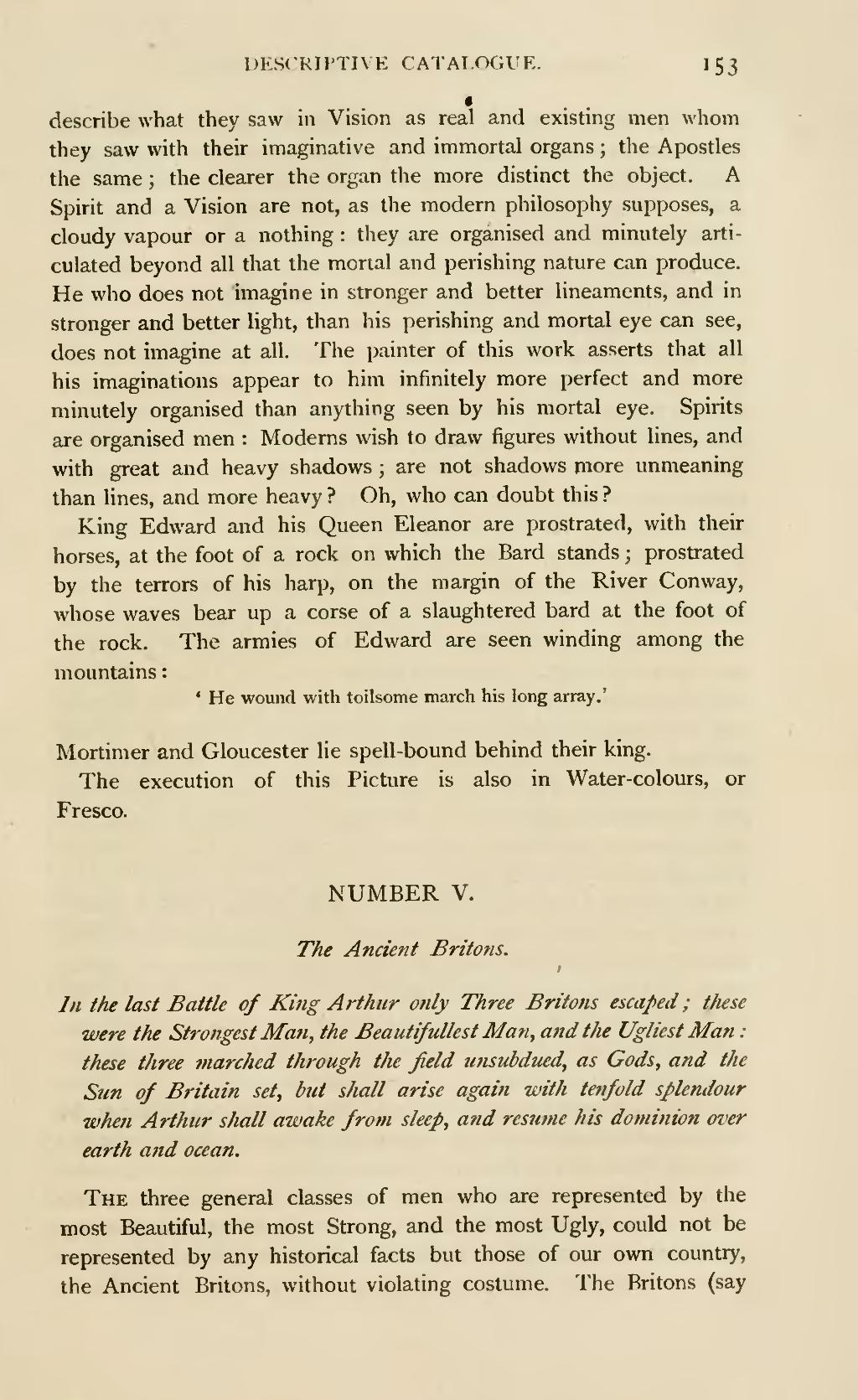describe what they saw in Vision as real and existing men whom they saw with their imaginative and immortal organs; the Apostles the same; the clearer the organ the more distinct the object. A Spirit and a Vision are not, as the modern philosophy supposes, a cloudy vapour or a nothing: they are organised and minutely articulated beyond all that the mortal and perishing nature can produce. He who does not imagine in stronger and better lineaments, and in stronger and better light, than his perishing and mortal eye can see, does not imagine at all. The painter of this work asserts that all his imaginations appear to him infinitely more perfect and more minutely organised than anything seen by his mortal eye. Spirits are organised men: Moderns wish to draw figures without lines, and with great and heavy shadows; are not shadows more unmeaning than lines, and more heavy? Oh, who can doubt this?
King Edward and his Queen Eleanor are prostrated, with their horses, at the foot of a rock on which the Bard stands; prostrated by the terrors of his harp, on the margin of the River Conway, whose waves bear up a corse of a slaughtered bard at the foot of the rock. The armies of Edward are seen winding among the mountains:
'He wound with toilsome march his long array.'
Mortimer and Gloucester lie spell-bound behind their king.
The execution of this Picture is also in Water-colours, or Fresco.
NUMBER V.
The Ancient Britons.
The three general classes of men who are represented by the most Beautiful, the most Strong, and the most Ugly, could not be represented by any historical facts but those of our own country, the Ancient Britons, without violating costume. The Britons (say
